
As hiring managers, you try your best to accomplish one key objective.
To build the best team that you can afford to have.
However, hiring is not a science. It is an art. How do you get better at something that does not have a step-by-step process to ensure success?
To accomplish this objective, we surfed the net to find the hiring philosophies and quotes of some of the world’s top leaders who have built great businesses with even greater people. These philosophies that we will explore are proven ways to build high-achieving teams.
Below you have all the quotes and philosophies of different leaders clustered into one list to help you build your dream team. Let's get into it right away:
Seek High Integrity People
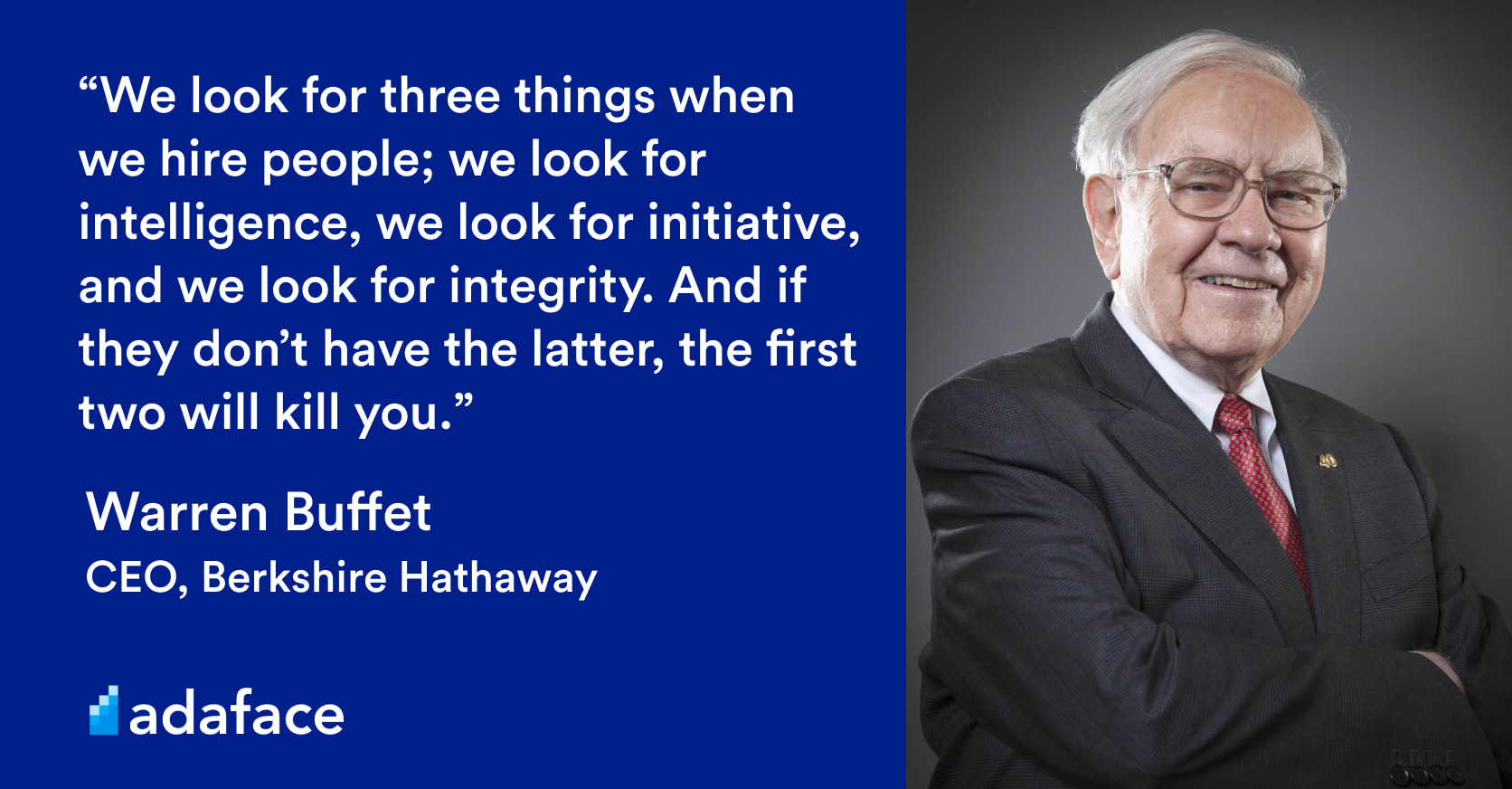
Arguably the most successful investor of our time, Warren Buffet firmly believes integrity is the key to a successful employee. While intelligence and energy are in fact important characteristics, integrity is the pillar that holds the other two in place.
To build reputable and trusted brands, you need people with high integrity. They tend to quickly become reasonable and dependable people in the office, making them great leaders.
Find Different Animals, But the Same Beast
You want each employee to be a superstar in their own way. For example, Paul Graham, the co-founder of Y Combinator, shares his opinion on the woman in charge of sales for his company.
"Almost everyone who worked for us was an animal at what they did. The woman in charge of sales was so tenacious that I used to feel sorry for potential customers on the phone with her. You could sense them squirming on the hook, but you knew there would be no rest for them till they'd signed up."
- Paul Graham, Co-founder of Y Combinator
This goes to say that hire employees who are superstars in their own unique way but have the same mentality of never giving up, just like anyone else in your organization.
Hire Your Weaknesses
No one is a perfect human being. You excel in some areas while hitting a glass ceiling in others. If you want to break open this glass ceiling, the first objective you must accomplish is to identify your weakness and hire people who excel in those areas.
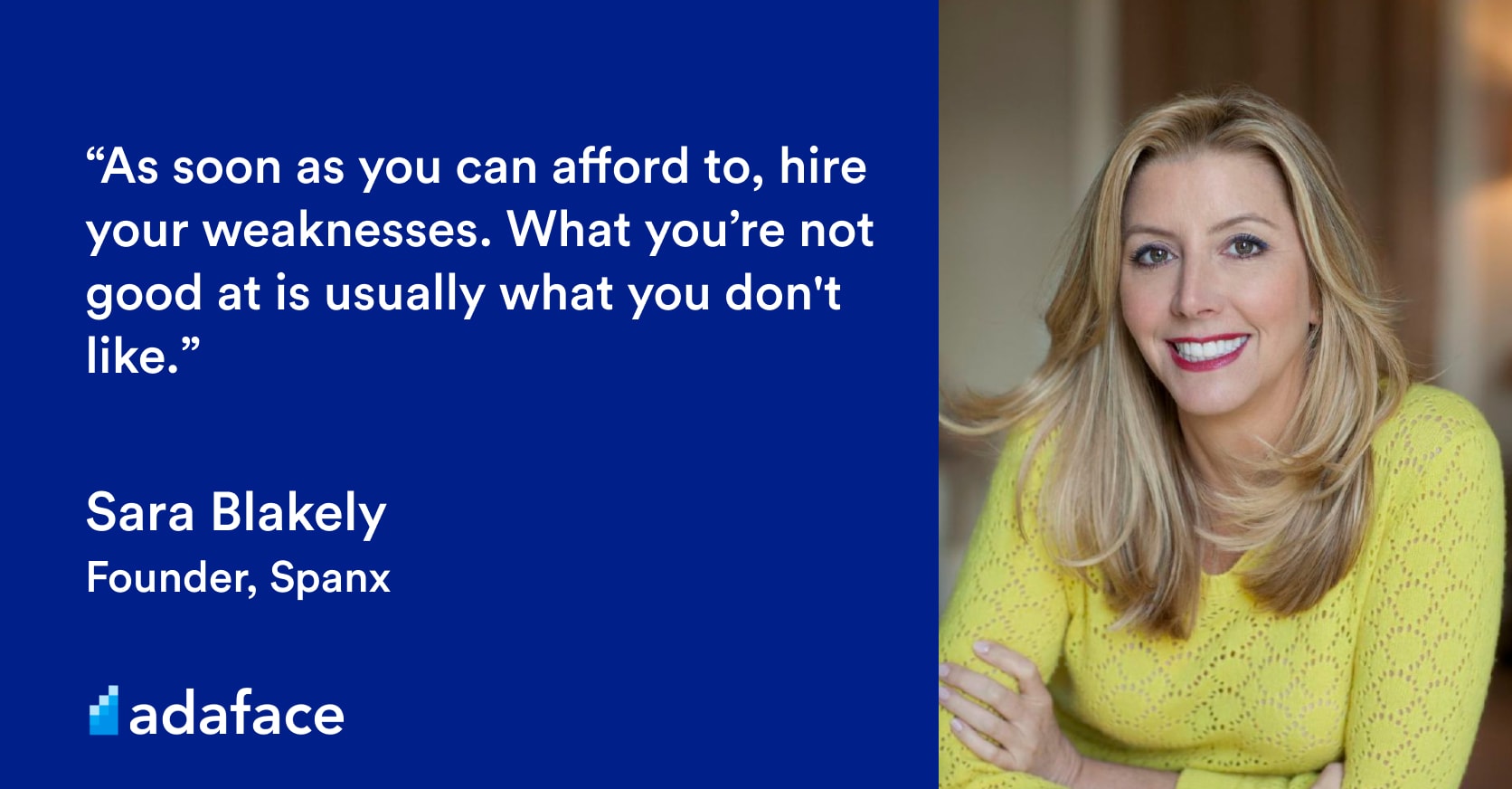
Sara Blakely, the founder of Spanx, speaks the harsh truth when it comes to the fact that when you are not good at something, it is usually because you don't like it. Don't try to waste time trying to get better at something that you are not a fan of, which can only end up with you compromising on the quality of work you are doing. Instead, hire people who are passionate to work in the areas where you or your organization identifies as a point of weakness.
Use Personality Assessments for the Complete Picture
"Personality assessments can be a fantastic tool in your arsenal for quickly getting a picture of what people are like - abilities, preferences, and style. They are often much more objective and reliable than interviews."
- Ray Dalio, Founder of Bridgewater Associates
Being one of the most successful investors of the last few decades and the founder of the world's largest hedge fund, Ray Dalio believes in a scientific and strategic approach to hiring.
At Bridgewater, they use personality assessments to get a complete picture of the candidate they are looking to hire since interviews alone do not provide enough insight into their character, inclinations and motivations.
A bonus of using the proper personality assessments is that you can "kill two birds with one stone". You can predict the new hire's job performance and determine whether they will culturally fit into your organization.
Past Experience Speaks for Future Adventures
Elon Musk, a man that needs no introduction, is known for his unorthodox hiring methods. He does not believe in a degree vouching for any skillset and is a strong advocate for prioritizing proven track records over any skill obtained through a college degree.
“What I’m really looking for is evidence of exceptional ability. Did they face really difficult problems and overcome them? And of course you want to make sure if there was some significant accomplishment, were they really responsible or was someone else more responsible. Usually, someone who really had to struggle with a problem, they really understand it and they don’t forget.”
- Elon Musk, CEO of Tesla Motors & SpaceX
He firmly believes that when an individual has gone through a problem, not as a spectator but as someone who has experienced it, they understand how to maneuver through difficult situations.
"I like to see what someone has done. Not been involved in, or been part of, or watched happen, or was hanging around when it happened. I look for something you’ve done, either in a job or (often better yet) outside of a job."
- Marc Andreesen, Co-founder of Netscape
Many leaders of the tech world advocate this philosophy. Marc Andreesen, one of the most prolific investors and the co-founder of Netscape, says that he looks not just for something the candidate has done in a previous job but also for things they have done outside of a job which says a lot about them and their approach to everyday work problems.
But how do you look for these exceptional experiences?
Brian Chesky, co-founder and CEO of Airbnb, has a way of finding remarkable things their candidates have done in their life.
"I also ask people to summarize their life in three minutes. I’m trying to figure out the formative decisions and experiences that influenced who you are as a person. Once I figure that out, I’m trying to understand the two or three most remarkable things you’ve ever done in your life. Because if you’ve never done anything remarkable in your life until this point, you probably never will."
- Brian Chesky, Co-founder & CEO of Airbnb
This scarcity technique, wherein you provide them with limited time to describe themselves, forces them to focus on only the unique or life-changing things that happened in their life.
Avoid Skeptics, Hire Optimists
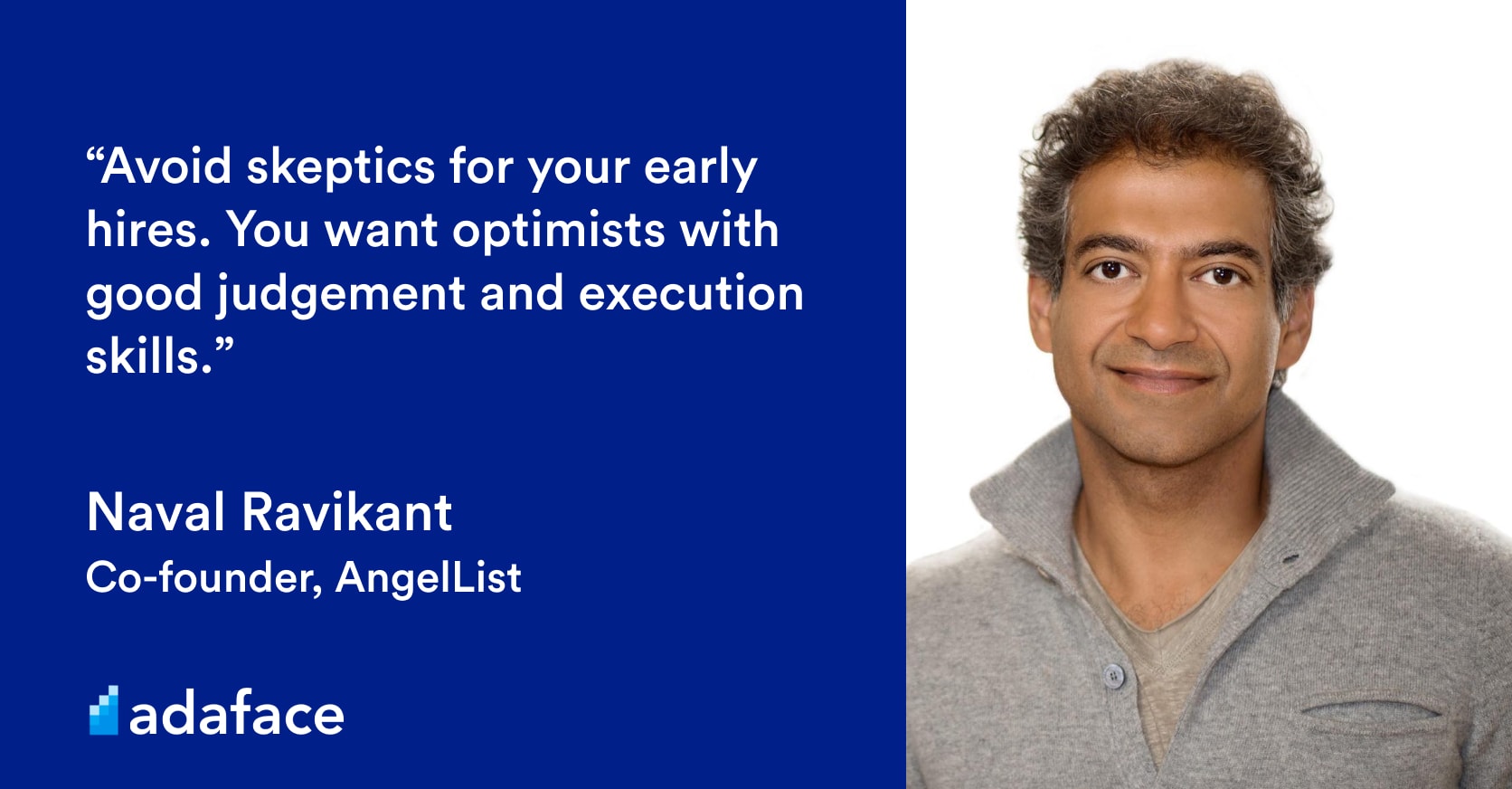
Founder of AngelList, one of the biggest platforms for both recruiters and job-seekers, Naval Ravikant, is one of the aptest people to follow regarding hiring philosophies.
Naval strongly believes in avoiding sceptical people for your organization since this inhibits growth. Optimists are the kind of people you want to have around, irrespective of how large your organization can be.
Hiring candidates who are optimists with good execution skills and evidence of good judgement in their past are the type of employees every organization can benefit from.
Use References to Verify the Candidate's Ability
Being the principled person that he is, Ray Dalio attributes most of his and his company's success to the principles they follow.
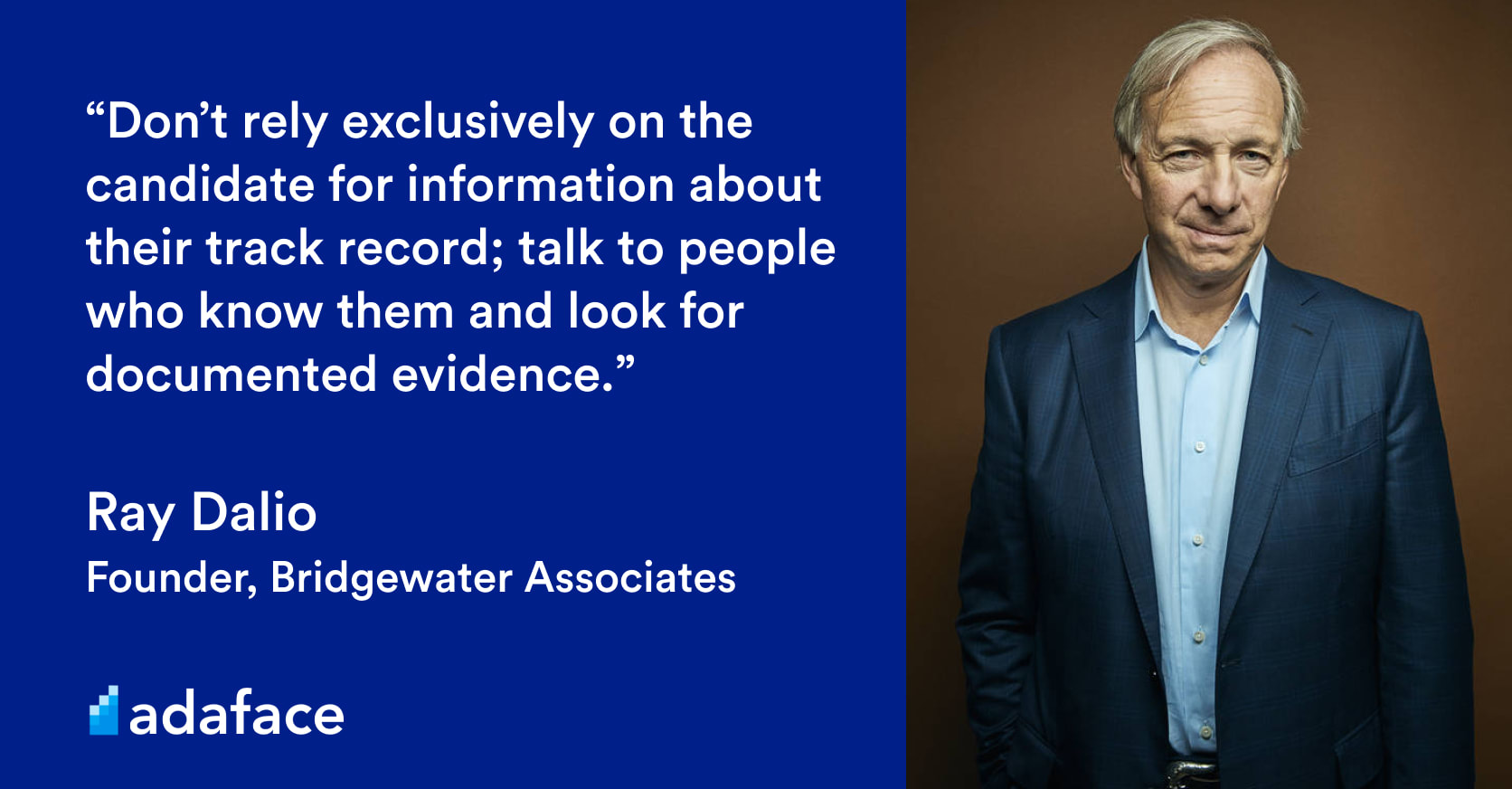
Another principle they follow at Bridgewater is that every candidate is vetted by talking to people who already know of them. This is evidence of how good (or bad) they are because it is supported by statements from people who know them on a personal level.
However, in the case of name references, people are usually nice, so it would be difficult to get the truth out of them. But John Collison, the co-founder of Stripe, uses a workaround by creating an artificial scarcity to the situation.
"I think for name references, people do want to be nice, so you have to create an artificial scarcity by saying, where would you rank this person with people you worked with."
- John Collison, Co-founder of Stripe
By giving them a scenario where they cannot provide generic compliments, you force them to narrow down their opinion of the candidate.
Provide More than Fair Compensation
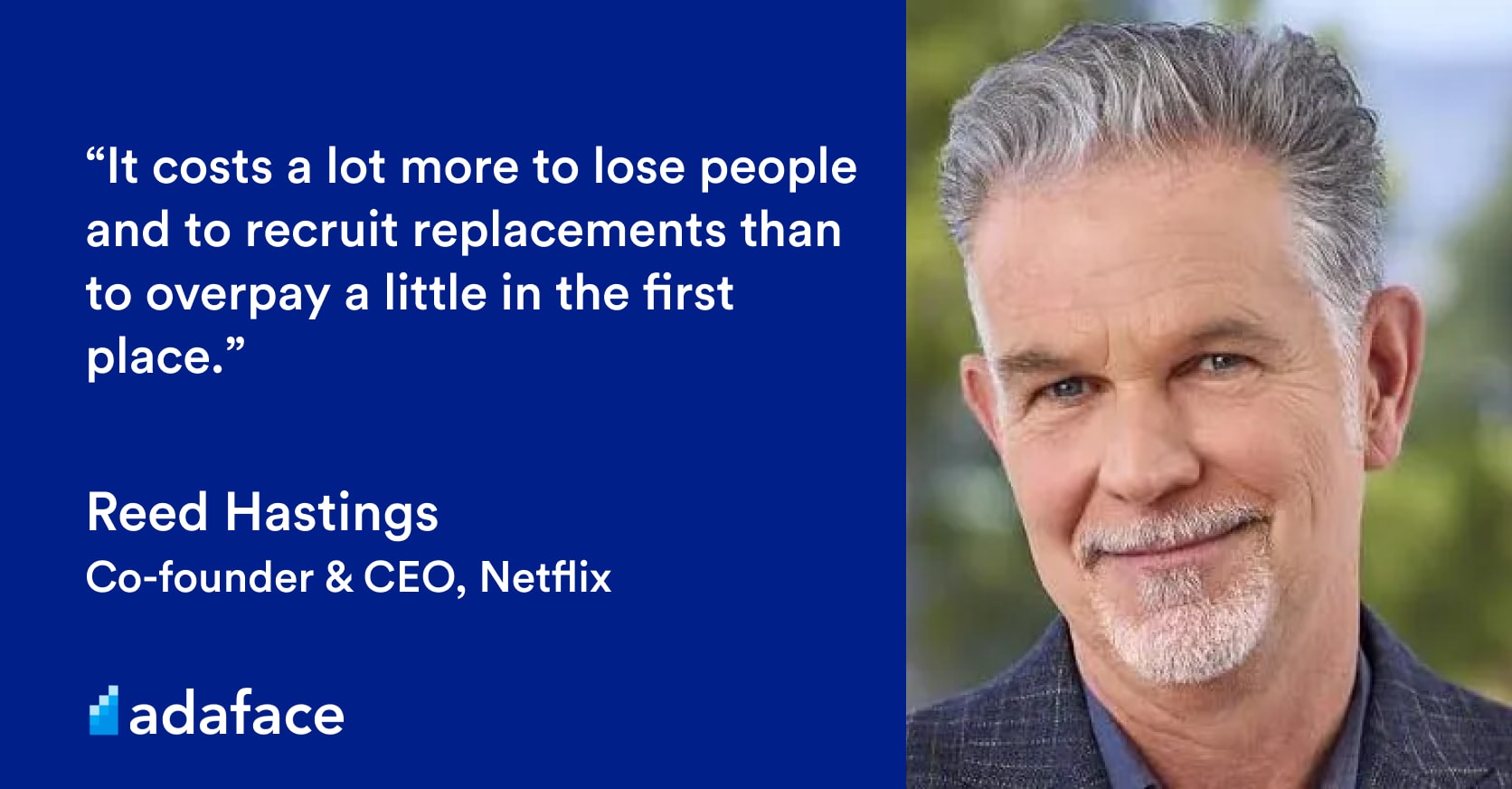
Replacing an employee (good or bad) is expensive. In the case of good employees, organizations are always looking to grab them the instant they get a chance. So make sure you pay for the person, not their job title.
However, you have to be careful not to pay them excess that your employees lose motivation to achieve their dreams. Ray Dalio puts it perfectly by stating that you want to provide both stability and opportunity with compensation.
"When considering compensation, provide both stability and opportunity."
- Ray Dalio, Founder of Bridgewater Associates
You motivate the employee to work harder and put in more effort by giving room for improvement.
Fire Fast
"If the person you hired is not a good fit, you owe it to them and to the company to tell them where to improve and if they aren't working out, then to fire them"
- Ben Silbermann, Co-founder and CEO of Pinterest
Ben Silbermann, the co-founder and CEO of Pinterest, believes in making quick fixes for any bad hires in their company. The person hired is either taught what they can improve on or is let go if things are not working out.
Organizations look towards hiring because they have a problem that needs to be solved, whether handling additional workloads or aiding the company's growth. If the new hire is not a good fit, you now have an additional problem to resolve. Unless you want to face the consequences of retaining bad hires, you must immediately find a way to improve their performance or let them go. Not doing either is bad for both the company and the employee.
Don't Hire
This might sound surprising, considering the whole purpose of the article was to follow certain hiring philosophies which help you onboard the best candidate. But as we mentioned before, you must hire to solve a particular problem, not for the sake of hiring.
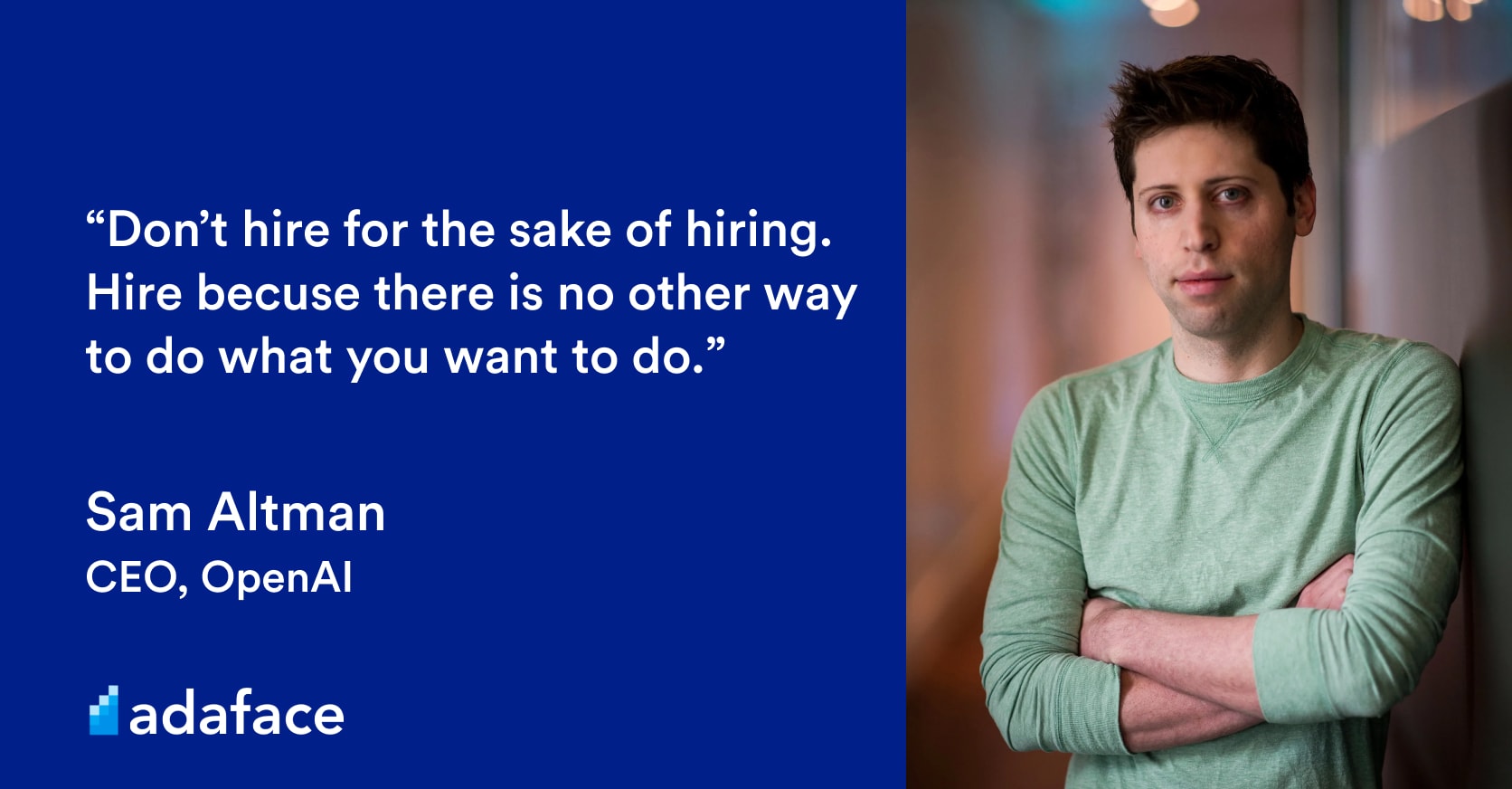
Unless there is no other optimum way of solving the problem, you should not be looking to hire unnecessarily.
My default advice about hiring is to hire someone if and only if the lack of that person is the main thing holding back your growth. That doesn't change just because you have a lot of money in the bank.
— Paul Graham (@paulg) August 16, 2022
Irrespective of whether you have excess money, hiring must be done only when it is absolutely required. Hiring a new person might not be the best decision if the company can progress without that person.
On a Final Note
Hiring is not an easy task for most of us. Even leaders of successful companies like the ones we have seen above have made their fair share of mistakes in hiring.
However, following the hiring principles of such leaders can help you recruit the right kind of individuals for your organization since these are proven methods of building successful businesses. By incorporating these principles into your hiring process, you can be confident that most, if not all of your hiring decisions will be great ones.

Pragnesh is the EiR at Adaface. He loves reading books more than scrolling through social media, which is a big deal if you ask him.
Spending too much time screening candidates?
We make it easy for you to find the best candidates in your pipeline-
with a 40 min skills test.


